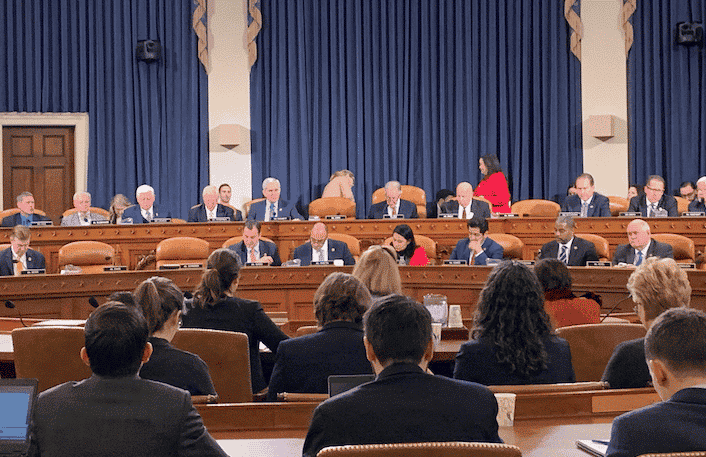It’s time for paid leave for all

This week the House Ways and Means Committee will hold a hearing on a critical issue for working families: paid family and medical leave. While there have been champions on this issue for years, including sponsors of key legislation like Rep. Rosa DeLauro (D-Conn.) and Sen. Kirsten Gillibrand (D-N.Y.), we commend other members of Congress, presidential candidates, and leaders across movements who now realize the urgency of this moment: The time and the opportunity for paid leave for all is now.
The United States is one of the only countries in the world that doesn’t guarantee paid leave. In the wealthiest country in the world, it’s scandalous that nearly 1 in 4 mothers return to work within two weeks of giving birth and 1 in 5 retirees left or forced to leave the workforce earlier than planned to care for an ill family member.
The cost to workers, every year that we fail to pass paid leave, is enormous — over $22.5 billion in lost wages, money that also results in lost revenue for local businesses.
As women of color, we’re acutely aware that low-wage workers and workers of color are most harmed by our failure to provide paid leave, and these workers shoulder the disproportionate costs for our communities and our country.
Black women and Latinas are more likely to work in jobs that have lower pay and less opportunity for advancement. At the same time, they are also breadwinners and caregivers for their own, and sometimes others’ families. Together, this results in less economic mobility for women of color; a situation exacerbated when family and medical needs arise.
It’s encouraging to see Congress and candidates across the political spectrum acknowledge the need for paid leave. But not all plans claiming to be paid family leave will deliver for working families. If policies do not address the needs of low-wage earners and diverse caregivers and cover the full spectrum of care needs, these policies will systematically perpetuate racial, economic, and gender inequities.
This is why proposals that would require workers to cut their future child tax credit or Social Security benefits, to have some funds when they welcome a new child, are so dangerous. These harmful proposals are scams. They do not guarantee any leave. They exclude 75 percent of those who need to take leave for reasons of family caregiving or personal medical needs. They also have no sustainable revenue stream.
Ensuring Congress enacts a robust, inclusive, and comprehensive paid family and medical leave policy is why our respective organizations have joined with others to form the Paid Leave for All campaign.
Based on evidence from successful state programs, we’ve committed to principles that ensure a national policy will be inclusive and effective. These principles are high enough wage replacement so workers can afford to take the leave; job protection, so they are safe to use it; sufficient time to address caregiving needs, and a definition of family that recognizes all our loved ones.
Recent polling shows that eight in ten voters support a comprehensive, inclusive, sustainably — funded national paid family and medical leave law.
The majority of small business owners agree — Small Business for Paid Leave found that the majority of small businesses support establishing a federal program to guarantee access to paid family and medical leave because it will allow them to offer paid leave and compete with large corporations. And a growing number of experts, health professionals, large employers, and others are joining in to say it’s time for paid leave for all.
That’s why policymakers should support an effective paid leave proposal like the Family and Medical Insurance Leave Act.
This bipartisan bill now has over 200 co-sponsors in the House. The FAMILY Act provides up to 12 weeks of leave for all care purposes. Modeled after the successful state paid leave programs, the FAMILY Act would be self-sustaining and funded by small, shared contributions from both employers and employees, averaging roughly $2 per week.
As the FAMILY Act advances in the House, Congress should look to best practices and innovation from state programs to improve upon the current bill.
We know our country will be stronger when all families have time to heal from illness or injury, to welcome a new child, to help a loved one recover, or ease their passing.
Paid leave should be accessible to all families, and it should not require a tradeoff that penalizes workers — especially working women of color. Candidates, elected officials, and the media should ask hard questions about any proposal such as who’s covered, for what purposes, and with what protection. It’s time for paid leave for all.
Wendy Chun Hoon is the director of Family Values @ Work, a national network of coalitions in 27 states fighting for paid sick and safe days and family and medical leave insurance. Erika Moritsugu is a vice president at the National Partnership for Women & Families, where she leads the Economic Justice team. Shilpa Phadke is the vice president of the Women’s Initiative at the Center for American Progress.
Previously published by Roll Call — 01/28/20 04:00 PM EST